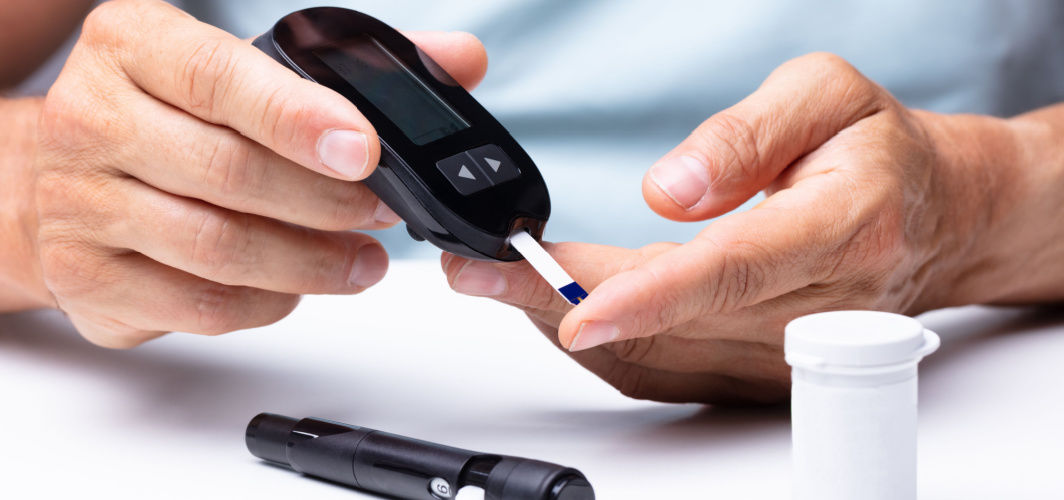Diabetes Management
Does Weight Loss Help in Managing Diabetes?
2 min read
By Apollo 24|7, Published on - 14 December 2023
Share this article
0
0 like

Type II diabetes, characterised by insulin resistance and high blood glucose levels, is a prevalent metabolic disorder affecting millions worldwide. Lifestyle modifications, including weight loss, have been widely recommended as a cornerstone in managing this condition. In this article, we will talk how weight loss impacts blood glucose levels in Type II Diabetes.
Understanding the Connection
Weight loss plays a pivotal role in managing Type II diabetes due to its direct impact on insulin sensitivity. Excess body fat, especially in the abdominal region, contributes to insulin resistance, making it difficult for cells to respond to insulin effectively. As a result, blood glucose levels rise, leading to complications associated with diabetes.
Research Studies
Numerous studies have examined the relationship between weight loss and blood glucose control in Type II diabetes. A study published in the New England Journal of Medicine found that a weight loss of 5-10% of total body weight improved insulin sensitivity, leading to better blood glucose regulation.
How Does it Work?
While researches suggest that weight loss helps in a better blood glucose regulation, let’s dive deeper to understand the mechanism that support these studies.
Reduced Fat Accumulation
Excess fat, especially visceral fat surrounding organs, releases inflammatory substances that contribute to insulin resistance. Weight loss decreases fat accumulation, subsequently lowering inflammation and improving insulin sensitivity.
Enhanced Insulin Sensitivity
Adipose tissue secretes hormones and cytokines that interfere with insulin action. As weight decreases, these hormonal disruptions diminish, improving insulin sensitivity and glucose utilisation by cells.
Improved Beta-Cell Function
Weight loss has been associated with enhanced functioning of pancreatic beta cells, responsible for insulin production. This improvement in beta-cell function further contributes to better blood glucose control.
Lifestyle Modifications
Besides shedding excess weight, adopting a healthier lifestyle is crucial for managing Type II diabetes. Incorporating regular physical activity and making dietary changes, such as opting for a balanced, nutrient-dense diet, can complement weight loss efforts and further improve blood glucose levels.
Considerations and Individual Variability
While weight loss generally leads to improved blood glucose control in Type II diabetes, individual responses may vary. Factors such as genetics, age, and the duration of diabetes can influence how individuals respond to weight loss interventions. It is essential for healthcare professionals to tailor recommendations to each person's unique circumstances.
Conclusion
There is substantial evidence supporting the positive impact of weight loss on blood glucose levels in Type II diabetes. Embracing a healthier lifestyle that includes weight management, regular exercise, and dietary modifications can significantly contribute to the effective management of this prevalent metabolic disorder.
You can also try the Apollo 24|7 Diabetes Self-Management Tool to log your sugar values, track patterns, know all about food nutrition and more.
Diabetes Management
Consult Top Diabetologists
View AllLeave Comment
Recommended for you

Diabetes Management
Managing Diabetic Neuropathy: Tips For Relieving Pain and Discomfort
While there's no cure, symptom management for relieving pain and discomfort is crucial for managing diabetic neuropathy. Tips include controlling blood sugar levels through a healthy lifestyle, medications prescribed by your doctor, regular exercise, and proper foot care. Pain relief options may include prescription pain relievers, antidepressants, and anticonvulsants. Consult a healthcare professional to create a personalised plan for managing diabetic neuropathy, which can help improve your quality of life.

Diabetes Management
Five Essential Tips for Diabetes Self-Management
Effective diabetes management requires regular blood sugar monitoring, a balanced diet, exercise, medication adherence, and stress management. These steps empower individuals with Type 1, Type 2, or Gestational Diabetes to lead healthier lives with reduced complications. Dedication to these measures yields improved health outcomes, making it a worthwhile effort.

Diabetes Management
Can Diabetes Cause Blurry Vision?
Diabetes and blurry vision are closely linked, as high blood sugar levels can affect the eye's lens shape and fluid balance, resulting in vision problems. Conditions like diabetic retinopathy, macular edema, glaucoma, and cataracts can lead to blurry vision in diabetics. Early detection through regular eye exams is vital to prevent complications. Managing blood sugar levels, adopting a healthy lifestyle, and taking prescribed medications are key to preventing and treating diabetic eye problems.
Subscribe
Sign up for our free Health Library Daily Newsletter
Get doctor-approved health tips, news, and more.
Visual Stories

8 Fruits That are Incredibly Healthy for Diabetes
Tap to continue exploring
Recommended for you

Diabetes Management
Managing Diabetic Neuropathy: Tips For Relieving Pain and Discomfort
While there's no cure, symptom management for relieving pain and discomfort is crucial for managing diabetic neuropathy. Tips include controlling blood sugar levels through a healthy lifestyle, medications prescribed by your doctor, regular exercise, and proper foot care. Pain relief options may include prescription pain relievers, antidepressants, and anticonvulsants. Consult a healthcare professional to create a personalised plan for managing diabetic neuropathy, which can help improve your quality of life.

Diabetes Management
Five Essential Tips for Diabetes Self-Management
Effective diabetes management requires regular blood sugar monitoring, a balanced diet, exercise, medication adherence, and stress management. These steps empower individuals with Type 1, Type 2, or Gestational Diabetes to lead healthier lives with reduced complications. Dedication to these measures yields improved health outcomes, making it a worthwhile effort.

Diabetes Management
Can Diabetes Cause Blurry Vision?
Diabetes and blurry vision are closely linked, as high blood sugar levels can affect the eye's lens shape and fluid balance, resulting in vision problems. Conditions like diabetic retinopathy, macular edema, glaucoma, and cataracts can lead to blurry vision in diabetics. Early detection through regular eye exams is vital to prevent complications. Managing blood sugar levels, adopting a healthy lifestyle, and taking prescribed medications are key to preventing and treating diabetic eye problems.


